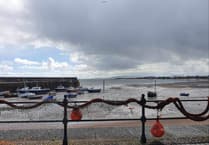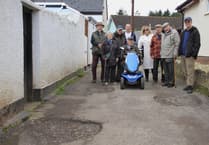WEST Somerset Railway could in future be owned by a charity and the present company replaced by a new operator in sweeping changes recommended in a report on the cash-strapped line commissioned by the Heritage Railway Association.
The report, by railway authority John Bailey, claimed that the whole WSR structure needed a complete overhaul and suggested that WSR assets should be transferred to a new controlling charity which could then contract an operator to run the services.
Mr Bailey believed that would leave the railway far better placed to apply for grants and would bring money-saving benefits such as gift-aid on donations and exemptions from corporation tax and VAT.
The report had been compiled after discussions with organisations connected to the railway and while a new structure would not happen overnight, a culture change could occur quickly.
“It needs to be inclusive, collaborative, and focused on the railway‘s role as a key player in the local community,” the report said.
This week, the WSR welcomed the recommendations and planned to start a consultation process with shareholders. And local MP Ian Liddell-Grainger said a restructuring would be the best route to secure the railway’s future.
In his report, Mr Bailey said he felt the present plc was not a suitable organisation to act as the operator for a charity and it would probably be better to create a new company. The existing plc would become dormant and a new members’ charity, limited by guarantee would be created.
Day-to-day operation of the railway would be delegated by a services agreement to the new operating company but ultimate control would lie with the charity trustees.
The report continued: “The essential point is that such a restructure cannot be forced on the plc,” but added: “It is suggested that the benefits of creating a new charity with a new controlling plc operating subsidiary are assessed as a matter of urgency.”
A company spokesman said this week that the WSR “warmly welcomed” the Bailey report’s recommendations and would start a consultation process with its shareholders. It would also start discussions with the other charities though the recently re-formed Partnership Development Group.
The consultations would discuss the report’s recommendation for the creation of a new incorporated charity with an operating company as a controlled subsidiary.The charity would act as a focus for the railway’s core activities, and would own the physical assets and contracts with a controlled subsidiar running the railway.
The WSR spokesman said: “The report highlights that for tax benefits alone, in addition to the obvious Gift Aid on donations, other benefits may include charitable rate relief, exclusion from corporation tax, VAT etc.
“The charity could set broad strategic objectives for the operating company, but the subsidiary’s board would be free, within those objectives, to operate the business against a requirement to generate annual surpluses to be paid over to the charity.
“A members charitable trust, with a clear public benefit purpose, could fund-raise with the benefit of charitable status. along with a financially sound subsidiary delivering a safe heritage railway nostalgic experience as part of the local tourist economy.
The spokesman added: “It is clear that any such re-organisation will throw up significant challenges. The most obvious of these is the future role of the existing charities, although Bailey states there is no reason why the charities that currently fundraise for their own limited objects should not continue to do so.
“It makes sense that the consultation should include bodies including local councils and other heritage railways. Their responses could form a key part of the decision-making process on how best to move forward.”
In a statement supporting the proposed plan, Mr Liddell-Grainger said placing the railway under the control of a new incorporated charity would appear the most sensible way of getting the WSR out of its current predicament.
It would leave the railway far better placed when it came to applying for grants and would bring money-saving benefits such as gift aid on donations and exemptions from corporation tax and VAT.
Mr Liddell-Grainger said he was encouraged that the company was about to start consulting its shareholders about the transformation.
“Coronavirus has put a major block on progress just as the railway appeared to have turned a financial corner,” he said.
“Clearly, it is the company’s intention to keep it operating and I hope everyone who knows and uses this exceptional line will feel able to support what is essentially a survival fund to see it through the biggest financial challenge in its history.
“But restructuring must be the best possible option in the long term. The railway clearly needs to start taking advantage of all the financial benefits that charitable status brings and I hope all parties will take the view that this is the best route to follow to secure the railway’s future.”




